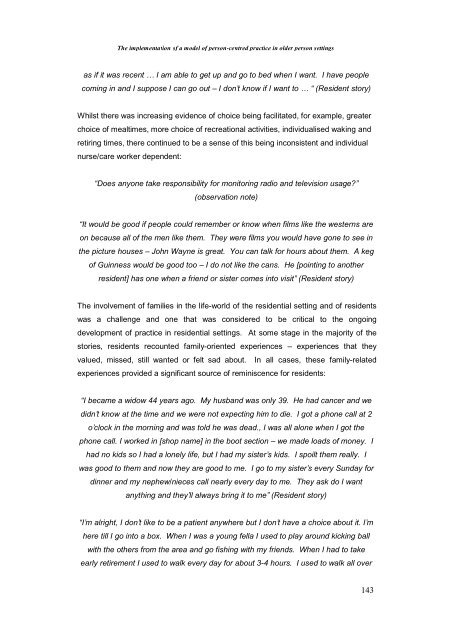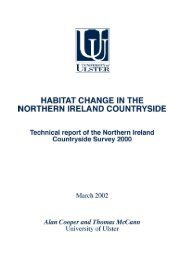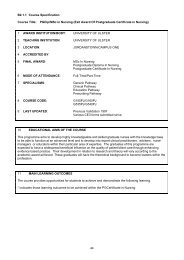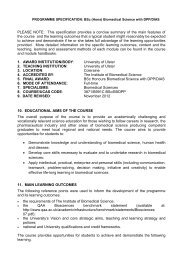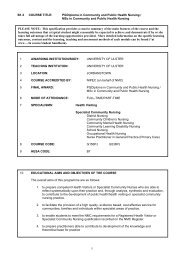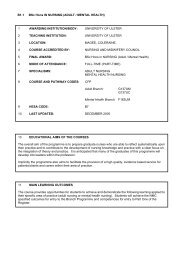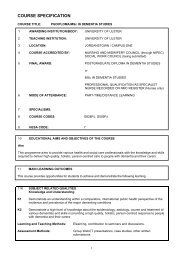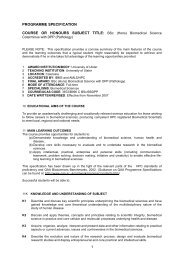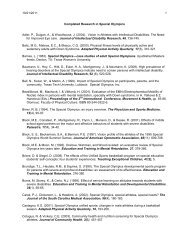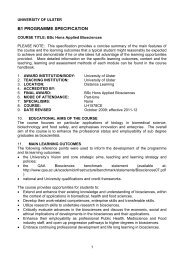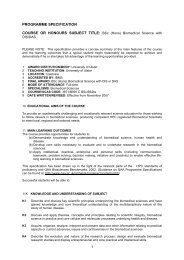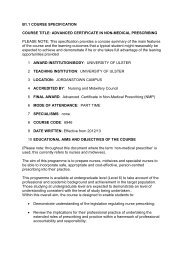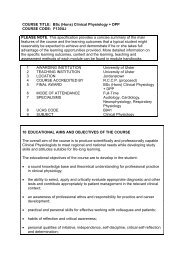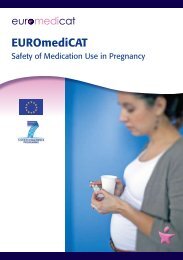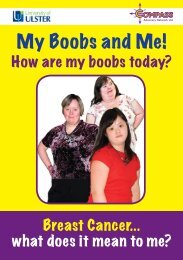The Implementation of a Model of Person-Centred Practice In Older ...
The Implementation of a Model of Person-Centred Practice In Older ...
The Implementation of a Model of Person-Centred Practice In Older ...
You also want an ePaper? Increase the reach of your titles
YUMPU automatically turns print PDFs into web optimized ePapers that Google loves.
<strong>The</strong> implementation <strong>of</strong> a model <strong>of</strong> person-centred practice in older person settings<br />
as if it was recent … I am able to get up and go to bed when I want. I have people<br />
coming in and I suppose I can go out – I don’t know if I want to … “ (Resident story)<br />
Whilst there was increasing evidence <strong>of</strong> choice being facilitated, for example, greater<br />
choice <strong>of</strong> mealtimes, more choice <strong>of</strong> recreational activities, individualised waking and<br />
retiring times, there continued to be a sense <strong>of</strong> this being inconsistent and individual<br />
nurse/care worker dependent:<br />
“Does anyone take responsibility for monitoring radio and television usage?”<br />
(observation note)<br />
“It would be good if people could remember or know when films like the westerns are<br />
on because all <strong>of</strong> the men like them. <strong>The</strong>y were films you would have gone to see in<br />
the picture houses – John Wayne is great. You can talk for hours about them. A keg<br />
<strong>of</strong> Guinness would be good too – I do not like the cans. He [pointing to another<br />
resident] has one when a friend or sister comes into visit” (Resident story)<br />
<strong>The</strong> involvement <strong>of</strong> families in the life-world <strong>of</strong> the residential setting and <strong>of</strong> residents<br />
was a challenge and one that was considered to be critical to the ongoing<br />
development <strong>of</strong> practice in residential settings. At some stage in the majority <strong>of</strong> the<br />
stories, residents recounted family-oriented experiences – experiences that they<br />
valued, missed, still wanted or felt sad about. <strong>In</strong> all cases, these family-related<br />
experiences provided a significant source <strong>of</strong> reminiscence for residents:<br />
“I became a widow 44 years ago. My husband was only 39. He had cancer and we<br />
didn’t know at the time and we were not expecting him to die. I got a phone call at 2<br />
o’clock in the morning and was told he was dead., I was all alone when I got the<br />
phone call. I worked in [shop name] in the boot section – we made loads <strong>of</strong> money. I<br />
had no kids so I had a lonely life, but I had my sister’s kids. I spoilt them really. I<br />
was good to them and now they are good to me. I go to my sister’s every Sunday for<br />
dinner and my nephew/nieces call nearly every day to me. <strong>The</strong>y ask do I want<br />
anything and they’ll always bring it to me” (Resident story)<br />
“I’m alright, I don’t like to be a patient anywhere but I don’t have a choice about it. I’m<br />
here till I go into a box. When I was a young fella I used to play around kicking ball<br />
with the others from the area and go fishing with my friends. When I had to take<br />
early retirement I used to walk every day for about 3-4 hours. I used to walk all over<br />
143


